Joint Action Plan?
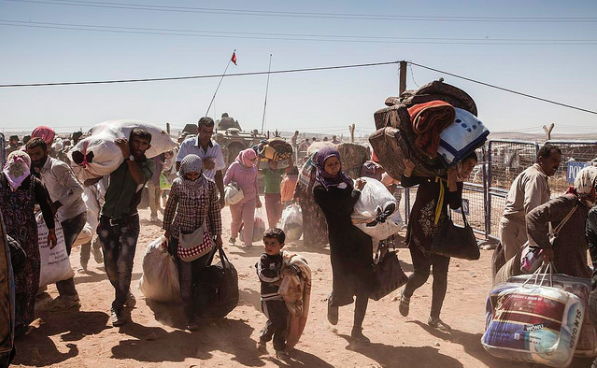
You have to understand,
that no one puts their children in a boat
unless the water is safer than the land…
London-based poet Warsan Shire’s “Home” has captured audiences around the world. Each stanza is poignant, carefully crafted with an amount of pathos that lends the reader pause. But what is most striking is the sense of urgency that Shire utilizes to channel the severity of the gut-wrenching decisions refugees must make at seemingly a moment’s notice. Ms. Shire has spent considerable time speaking with young, undocumented refugees from Somalia and Iraq who are currently in search of sanctuary in Europe. By broadcasting the trauma and hardship of their refugee and displacement experiences, Ms. Shire has also successfully drawn attention to the broader humanitarian crisis Europe is currently facing. But of all of Shire’s written work and spoken word performances, “Home” has resonated the most with audiences due to its stanza referencing smugglers’ migration routes across the Aegean. Shire’s portrayal of the harsh reality of the migrants’ experience has thus made what audiences typically view on the nightly news seem much more real.
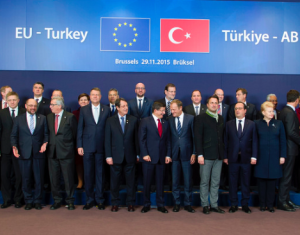
Presently, European leaders are striving to make Shire’s allusion a thing of the past with the implementation of the EU-Turkey Joint Action Plan. Following the EU-Turkey Summit held in Brussels on March 7th, the European Council declared that “bold moves” were required in order to limit the number of irregular migrants attempting to enter Europe via the “Western Balkans route”, the path of choice for people smugglers operating between Turkey and Greece. The supposed Joint-Action Plan, originally negotiated in November of 2015, solidified the EU’s strategic cooperation with Turkey in the management of the migrant crisis. In the early months of 2016, elements of the Plan came into force, but it was a rocky start at best. In turn for helping to stem the flow of migrants and for better monitoring the activity of people smugglers operating within its territorial sea, Turkey was originally to be compensated 3 billion Euros (approximately 3.2 billion USD) in aid from EU member states. Additionally, leadership in Brussels also promised to reopen stalled EU accession talks and to implement visa-liberalization programs for Turks traveling to and working in Europe. NATO also vowed to assist Turkey in its monitoring efforts along the Aegean, but its plans have yet to come to full fruition. A NATO naval mission, tasked with electronically locating smugglers’ vessels and subsequently alerting the Turkish coastguard, was expected to be deployed as of February 29th. Due to “technical problems” this mission has seemingly failed to materialize.
The March 7th negotiations substantially expanded Turkey’s obligations, clearly redistributing the “burden-sharing” that European leadership advocated in the Fall. In what has been touted as a “breakthrough”, Turkey has now agreed to a controversial “readmission plan” for all irregular migrants turned away at the Greek border and refugees whose asylum papers have failed to “clear” elsewhere in the continent. This plan will go into effect in June of 2016 once approved by the relevant parties on March 17th.
In a press conference following Monday’s talks, Turkish Prime Minister Ahmet Davutoglu revealed “with this game-changing position in fact our objective is to discourage illegal migration, to prevent human smugglers, to help people who want to come to Europe through encouraging legal migration in a disciplined and regular manner.” Although Davutoglu has consented to the modified plan and its corresponding increase in financial support, it remains unclear whether this revised approach will resolve the crisis or merely outsource it to Ankara.
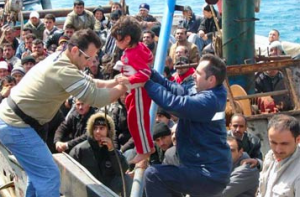
According to the UN High Commission for Refugees (UNHCR), approximately 2,500 migrants, packed onto dinghies, are smuggled across the Aegean from Turkey to Greece every day. This statistic reveals that 2016’s numbers are to dramatically increase from those of 2015—a disconcerting reality given that, proportionally, fewer migrants attempted the perilous sea journey during the winter months. In 2015, the UNHCR estimated that nearly 1,000,000 migrants and asylum seekers reached the Greek shores via sea routes from Turkey. Thus EU leadership is apparently rushing to put in place policies and mechanisms that will deter— and ultimately curb—the number of people headed for Europe in this manner. According to the UNHCR, the failure of European leadership to produce a coordinated response or to restructure the EU migration system in 2015 has produced a largely “self-induced” humanitarian catastrophe. Although many have claimed this to be an exaggeration, evidence seems to be mounting—literally—along the Greek-Macedonian border.

With European states and EU leadership in Brussels failing to devise a coherent program to manage the surge of migrants and refugees entering Europe, many states have begun to implement their own strategies, independent of wider European considerations. Although some countries, such as Germany, have maintained their “open door” policies, most others have instituted tighter border controls and stricter visa policies. In fact, disaffection with the large influx of migrants appears to be growing even within Germany; recent documents released from the office of Thomas de Maiziere, the Interior Minister within Chancellor Angela Merkel’s cabinet, reveled that his staff is currently hammering-out plans to seal Germany’s borders along the southern region of Bavaria. Bavarian police officials have also confirmed that they have been directed to enact “preliminary preparations” for “lasting border controls”. Germany takes to the polls on March 13th for its federal elections. If Merkel’s CDU performs poorly, it will be interpreted as a sure sign that the German people have lost faith in the Chancellor’s ability to effectively manage the country’s immigration and settlement policies. It will be interesting observe if or how Germany’s position changes following this critical election.
The Balkan countries of Macedonia, Croatia and Slovenia have shut their borders entirely, thus preventing the freedom of movement within the continent that migrants and refugees expect upon arriving in Greece. The Macedonian border closure is strategic given the nature of the Turkey-Greece migration pattern: with thousands of asylum seekers reaching Greece each day, Macedonia is now currently shutting them out from the “main route” to western Europe and leaving them trapped within Greece. Refugees and migrants are accumulating within Greece and are mounting along the border with Macedonia, hoping to pressure Macedonian authorities to reconsider their actions. But that seems unlikely. Donald Tusk, the President of the European Council, has recently declared “irregular flows of migrants along western Balkans route have come to an end.” Greece, unprepared for these developments, is struggling to accommodate its new “guests”. The Macedonian border closing is itself evidence that Europe is not committed to a united management of the current crisis. In fact, the burden of the crisis is increasingly shifting to Greece and Turkey—countries initially intended to serve merely as transit points for refugees and migrants alike.
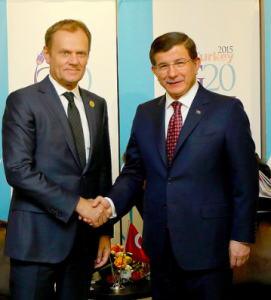
Presently, it seems that Greece is unwillingly assuming responsibility for thousands of migrants. But, the newly-negotiated Joint-Action Plan will remedy Greece’s dilemma and allow for Greece to become more selective as to who is allowed admission to the country, and ultimately, to the EU. The solution, constructed by EU leaders and Turkey, is the readmission provision recently tacked-onto the Joint Action Plan. Within this context, the readmission plan will allow for refugees and migrants to be “returned” to Turkey at the discretion of the Greek government and other EU states. However, for every refugee or migrant returned, the EU has vowed to admit one asylum seeker from Turkey and to resettle them in Europe. According to Prime Minister Davutoglu, the readmission agreement “sends a clear message to migrants coming from third countries, rather than countries at war… that there is neither the political will [to allow their passage] nor the ability to cross to Europe…this is the reality we ought to sincerely convey to them in order to stop, to reduce, this unbearable flow for our countries.”
Since 2002, Greece and Turkey have honored a separate bilateral readmission agreement, independent of that provided for in the Joint Action Plan. For example, on March 1st, Greece returned 70 Moroccan, Algerian and Tunisian migrants, who had entered Greece in search of economic opportunities, back to Turkey. The following day, a group of 200 Pakistani migrants were also returned to Turkish immigration authorities. The new readmission plan aims to strengthen the previous Greek-Turkish agreement and make it accessible to the broader European community. Thus, the readmission plan will break chain-migration patterns in which, typically male, economic migrants journey to Europe, settle, secure employment or state support and then provide for their family to immigrate to the given country legally. It is hoped that this new plan will prioritize those genuinely in need of asylum in Europe, but will also encourage them to go about this process through official legal channels as opposed to illegal migration methods.
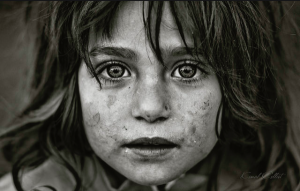
Although European and Turkish leadership appear to be in agreement concerning the revised Joint-Action Plan, it has been condemned by United Nations agencies and others, such as Amnesty International and Human Rights Watch. There are two key reasons for the backlash. The first concerns the EU’s commitment to its humanitarian mission. In 2015, European leaders vowed to construct an equitable, continent-wide resettlement strategy for asylum-seekers who had entered the continent illegally or had been processed through official channels. However, public opinion and political considerations drove many leaders, especially in central and eastern Europe, to renege on their agreements regarding humanitarian admission. Although the EU-Turkey Joint Action Plan is binding, Turkey is mistaken if it truly believes EU states will adequately and efficiently fulfill their end of the agreement. Refugees cannot be “swapped”, in either direction, en masse.
Past behavior has clearly proven that European states struggle to coordinate concerning the concept of equity. And, if European states fail to deliver, how will Turkey be expected to manage the number of people returned to their country? To date, Turkey has sheltered nearly 3 million Syrian refugees, 85% percent of whom live outside of refugee camps, oftentimes unaccounted for by the Turkish government. The original terms of the Joint-Action plan included 3 billion Euros in financial assistance from the EU to Turkey, which at a later date Turkish leaders claimed would not sufficiently cover the costs of accommodating a growing number of “guests”. The situation is unsustainable at present. The social and financial burden will only be exacerbated if greater numbers of migrants and refugees were essentially ejected from Europe and returned to Turkey.
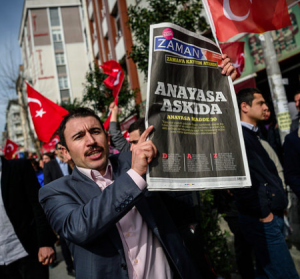
The second area of contention concerns the legality of the readmission agreement. Under international law, refugees cannot be sent back to a country that has not been deemed “safe”. A “safe state” has been defined as an environment that does not pose a threat to human life or liberty. But, it is in dispute whether Turkey fits this definition due to the multitude of human rights violations it has accrued. Members of the European Union have expressly cited this as a concern for Turkish admission into the EU, further throwing Turkey’s reputation under the spotlight. Turkey and Europe are both in a particularly awkward situation given the violent crack-down against the Zaman newspaper following its repeated criticisms of President Recep Erdogan. This recent piece of evidence certainly does not strengthen Turkey’s depiction as a supposed “safe” state. And, it should also be noted, the events surrounding the Zaman seizure were one of the more minor instances of state abuse and repression in Turkey. From a technical standpoint, Turkey has placed a reservation on the Geneva Convention, the main source of international law concerning refugees, that only allows for an influx of people fleeing Europe. It is unclear whether or not Turkey would have to abandon this regional restriction or find alternative legal justification for the readmission plan.
It is clear that the “one-for-one swap program” outlined in the readmission plan will have considerable implications for both the Turkish state and the large groups of asylum seekers and migrants who are to be directly affected by this policy change. Given the questionable legality and humanitarian concerns surrounding the readmission plan, one can only hope that the plan will provide preliminary steps towards a more comprehensive reevaluation of Europe’s crisis-management strategy. Only time will tell.
Photos courtesy of Flickr Creative Commons.
Works Cited
Cetingulec, Mehmet. “How Syria’s earliest refugees are about to become Turkish citizens.” Al Monitor: The Pulse of the Middle East. Last modified February 29, 2016. Accessed March 1, 2016.http://www.al-monitor.com/pulse/originals/2016/02/turkey-syria-refugees-becoming-political-force.html.
“Davutoglu on ISIL, Syrian refugees, and Ankara bombing.” Al Jazeera. Last modified February 23, 2016. Accessed March 1, 2016. http://www.aljazeera.com/programmes/talktojazeera/2016/02/turkish-pm-attack-pay-price-160223073208847.html.
“Donald Tusk exhorte les migrants économiques à rester chez eux.” France24. Last modified March 3, 2016. Accessed March 3, 2016. http://www.france24.com/fr/20160303-donald-tusk-migrants-economiques-frontiere-grece-macedoine-alexis-tsipras-crise
“EU-Turkey Cooperation: First meeting of the Steering Committee of the Facility for Refugees in Turkey.” The European Commission. Last modified February 18, 2016. Accessed March 1, 2016. http://europa.eu/rapid/press-release_IP-16-340_en.htm.
“EU-Turkey Joint Action Plan.” The European Commission. Last modified October 15, 2015. Accessed March 1, 2016. http://europa.eu/rapid/press-release_MEMO-15-5860_en.html
“EU/Turkey: Don’t Negotiate Away Refugee Rights.” Human Rights Watch. Last modified March 4, 2016. Accessed March 5, 2016. https://www.hrw.org/news/2016/03/04/eu/turkey-dont-negotiate-away-refugee-rights
“Greece sends 70 migrants back to Turkey.” Hurriyet Daily News. Last modified March 1, 2016. Accessed March 1, 2016. http://www.hurriyetdailynews.com/greece-sends-70-migrants-back-to-turkey.aspx?pageID=238&nID=95898&NewsCatID=351.
Idix, Semih. “How much support did Turkey provide to Syrian opposition?” Al Monitor: The Pulse of the Middle East. Last modified March 1, 2016. Accessed March 1, 2016. http://www.al-monitor.com/pulse/originals/2016/03/turkey-davutoglu-does-not-trust-arabs.html.
Kingsley, Patrick. “Balkan countries shut borders as attention turns to new refugee routes.” The Guardian. Last modified March 9, 2016. Accessed March 9, 2016. http://www.theguardian.com/world/2016/mar/09/balkans-refugee-route-closed-say-european-leaders
“Managing the Refugee Crisis: Commission reports on implementation of EU-Turkey Joint Action Plan.”The European Commission. Last modified February 10, 2016. Accessed March 1, 2016. http://europa.eu/rapid/press-release_IP-16-268_en.htm.
“Managing the Refugee Crisis: Eu-Turkey Joint Action Plan, Implementation Report.” The European Commission. Last modified February 10, 2016. Accessed March 1, 2016. http://ec.europa.eu/dgs/home-affairs/what-we-do/policies/european-agenda-migration/background-information/docs/managing_the_refugee_crisis_-_eu-turkey_join_action_plan_implementation_report_20160210_en.pdf.
“Merkel concerned over crisis at Greece-Macedonia border.” Anadolu News Agency. Last modified March 1, 2016. Accessed March 1, 2016. http://aa.com.tr/en/world/merkel-concerned-over-crisis-at-greece-macedonia-border/529856.
Pierino, Marc. “The EU-Turkey Refugee Deal Needs a Reset.” Carnegie Europe. Last modified February 16, 2016. Accessed March 1, 2016. http://carnegieeurope.eu/strategiceurope/?fa=62783.
Rankin, Jennifer. “Syria refugee crisis: EU and Turkey agree outline of ‘one in, one out’ deal.” The Guardian. Last modified March 7, 2016. Accessed March 7, 2016. http://www.theguardian.com/world/2016/mar/08/european-leaders-agree-outlines-of-refugee-deal-with-turkey
“Refugee crisis: Europe border closures to cause ‘chaos.'” Al Jazeera. Last modified February 23,2016. Accessed March 1, 2016. http://www.aljazeera.com/news/2016/02/europe-border-closures-chaos-confusion-160223123856593.html.
Robinson, Duncan, and Alex Barker. “Crunch moment for EU migrant crisis.” The Financial Times. Last modified February 29, 2016. Accessed March 1, 2016. http://www.ft.com/intl/cms/s/0/ f229c7c6-df07-11e5-b072-006d8d362ba3.html#axzz41iRCru41.
Safdar, Anealla. “Crisis looms as a new wave of refugees reaches Europe.” Al Jazeera. Last modified March 1, 2016. Accessed March 1, 2016. http://www.aljazeera.com/news/2016/03/crisis-looms-wave-refugees-reaches-europe-160301185424809.html.
Spiegel, Peter. “Tusk tells economic migrants to stop coming to Europe.” The Financial Times. Last modified March 3, 2016. Accessed March 3, 2016. http://www.ft.com/intl/cms/s/0/217ca17a-e128-11e5-8d9b-e88a2a889797.html#axzz41qyUoIb
“Some 80,000 refugees arrive in Europe in first six weeks of 2016.” UNHCR: The UN Refugee Agency. Last modified February 12, 2016. Accessed March 1, 2016. http://www.unhcr.org/56bdf0f26.html.
“Syrian refugee crisis can help ‘re-energise’ relations between Turkey and the EU.” The Brussels Times. Last modified March 1, 2016. Accessed March 1, 2016. http://www.brusselstimes.com/eu-affairs/5146/syrian-refugee-crisis-can-help-re-energise-relations-between-turkey-and-the-eu.
Vincenti, Daniela. “Turkish envoy: The EU should not tell us to open our borders when it is closing its own.” EurActiv.com. Last modified February 9, 2015. Accessed March 1, 2016. https://www.euractiv.com/section/med-south/interview/turkish-envoy-the-eu-should-not-tell-us-to-open-our-borders-when-it-is-closing-its-own/
“Visa-free deal with Turkey to trigger ‘new refugee influx’ to EU – Bundestag VP.” RT. Last modified March 1, 2016. Accessed March 1, 2016. https://www.rt.com/news/334074-turkey-visa-deal-eu/.
